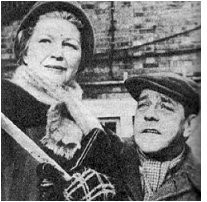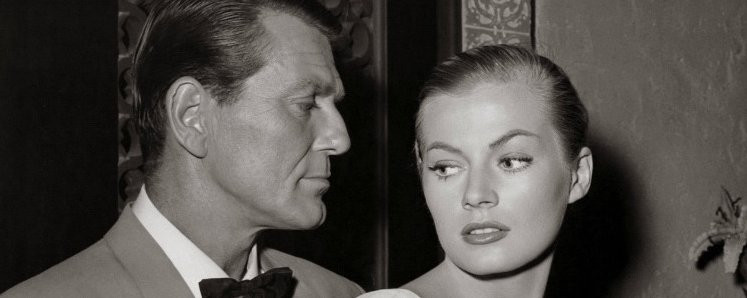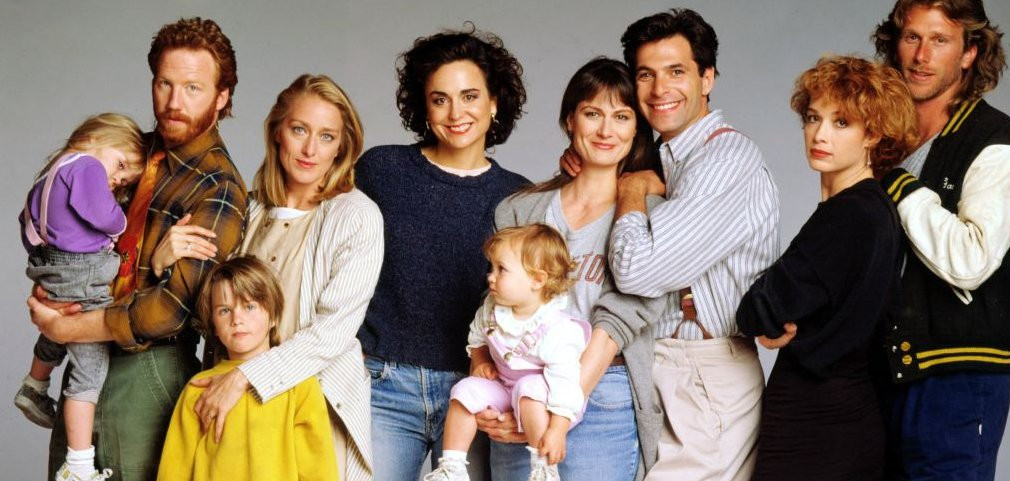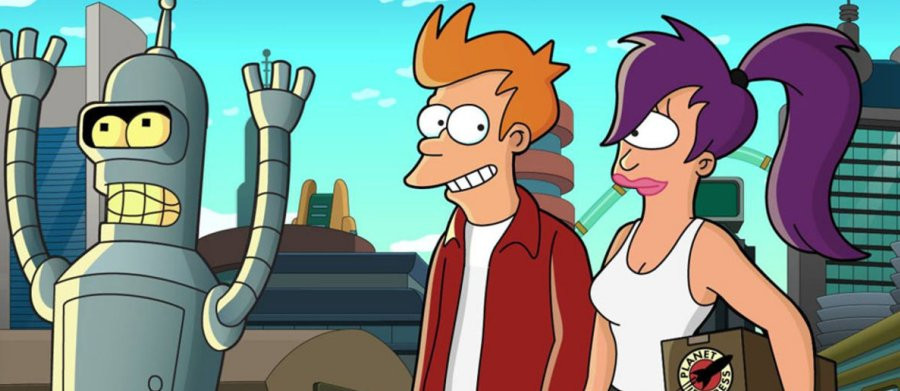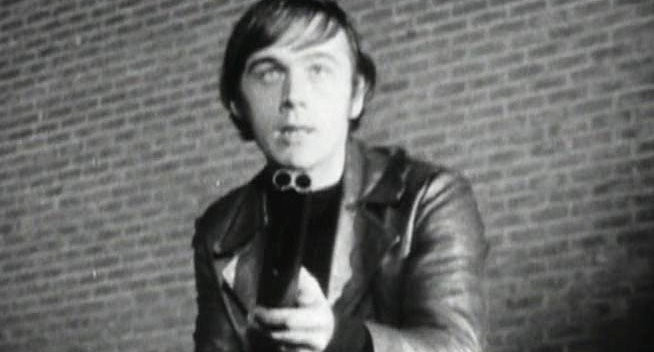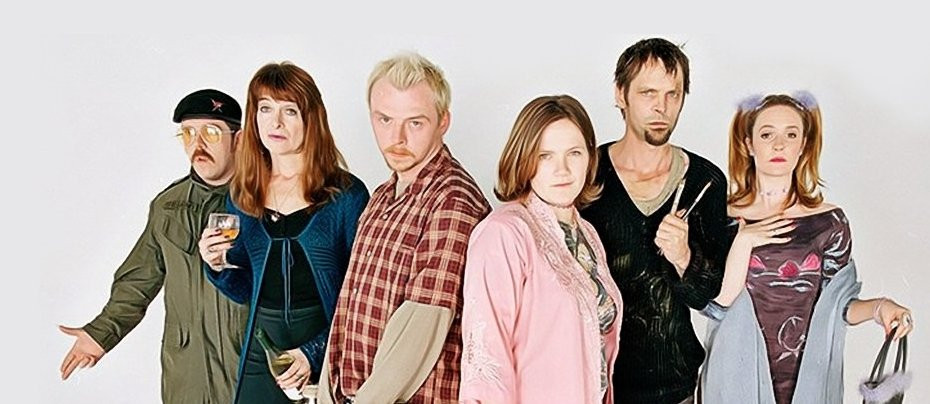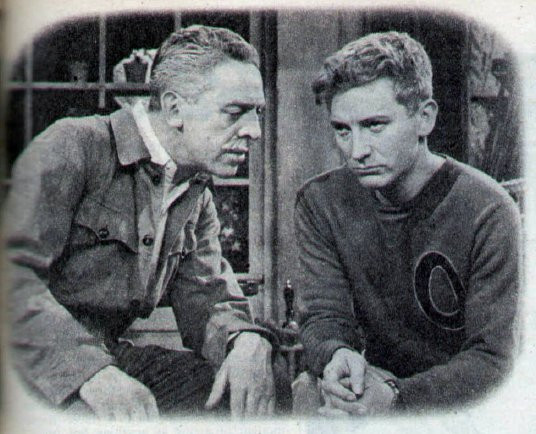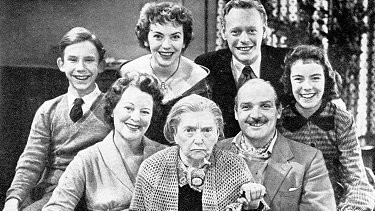
The West Wing
1999 - United StatesProbably the most successful U.S. dramatic series ever about politics, The West Wing managed to win over both viewers and critics with its look at a White House staff and the president they serve at the pleasure of. Over its seven-year run, “Wing” faced internal struggles, the loss of its creator and slipping ratings. But a dramatic presidential race in its final seasons–and the death of one of original characters– reminded loyal fans of the show’s tremendous power to move and inspire people of all political stripes.
Creator Aaron Sorkin was best known for writing such films as ’A Few Good Men’ and ’The American President’ before moving to television in 1988 to produce and create the ABC comedy-drama Sports Night. A series based in the world of a cable sports network, Sports Night. was hailed for its literate scripts and fine acting, but never found a mass audience and left the airwaves in 2000. Sports Night did give Sorkin the chance to work with producer/director Thomas Schlamme. In 1999, Sorkin decided to create a new drama loosely based on ’The American President’ but centring on the staff of the White House. (In fact, unused scenes and elements from ’The American President’ were incorporated into the new series.)
NBC liked the show; it fit with the network’s tradition of high-quality dramas (Hill Street Blues; St. Elsewhere; ER; Law & Order); but network head Robert Wright–a conservative Republican–was concerned about its focus about a Democratic president and more liberal issues. Programmers and Sorkin worked out the details to Wright’s satisfaction, while Sorkin brought ER producer John Wells to help oversee the series.
Originally, the show’s main focus was to be deputy communications director Sam Seaborn (Rob Lowe) with veteran actor Martin Sheen to appear as President Jed Bartlet on an occasional basis. But Sheen’s performance and growing popularity with viewers led Sorkin to make Bartlet’s character a regular, somewhat diminishing Lowe’s role. Others on the White House staff included Bartlet’s Chief of Staff and confidant Leo McGarry (John Spencer); his deputy chief of staff Josh Lyman (Bradley Whitford); communications director Toby Ziegler (Richard Schiff); and press secretary Claudia Jean (C.J.) Cregg (Allison Janney). Also a regular in the first season was political consultant Mandy Hampton (Moira Kelley) but her character was written out in the second season.
Soon after the show's premiere on September 22nd, 1999, Sorkin answered critics who faulted the lack of African-Americans in the fictional White House by casting Dule Hill as presidential aide Charlie Young; he remained for the series’ entire run. Frequently seen in the first season was Josh Lyman's slightly ditzy aide, Donna Moss (Janel Moloney); she became a regular starting with Season Two. Appearing occasionally during the first two seasons was Stockard Channing as First Lady Abigail Bartlet; she became a regular in Season Three.
During its first season, The West Wing dealt with a number of major and minor issues that mirrored much of what was going on in American and international politics at the time–debates over the death penalty, gays in the military, abortion, Bartlet’s response with force to a Middle East country where a group of Americans were killed; a life-threatening hurricane; choosing candidates for the Supreme Court and Federal Reserve; and dealing with a Republican congressman who threatened to expose White House staffers for alleged drug use (his real target was Leo McGarry, a recovering alcoholic and drug user who was spared from having to resign). Bartlet also had to deal with daughter Zoey dating presidential aide Charlie (which angered racist groups who didn't like the idea of a young white woman dating a black man). It was the Zoey-Charlie relationship that sparked an assassination attempt at the end of the first season; the second season premiere revealed that the president and Josh suffered gunshot wounds. Both recovered, but Josh ended up seeking counselling after blowing his stack in front of the president.
Viewers also learned more about the background White House staff. Leo had known Bartlett for at least 40 years, and the gruff chief of staff (in addition to his recovery from substance abuse) also had to deal with the end of his marriage. Toby was not Bartlett's first choice for the job, but eventually earned the president's respect (even though at times Toby’s self-righteousness tried the president's patience). Josh had worked for the presidential campaign of Bartlet’s Democratic rival, Texas Senator John Hoynes (Tim Matheson), until Leo urged him to switch over to Bartlett. Hoynes, who was more of a conservative Democrat, was chosen to run with Bartlet as his vice-president. Sam was plucked from his job in a prestigious New York law firm; C.J. was unhappy as a Hollywood publicist until Toby encouraged her to join the Bartlet team; and Donna started off as a volunteer in the campaign before she joined the paid staff as Josh's assistant.
One change that was made in the second season was the addition of Republican attorney Ainsley Hayes (Emily Procter) as Associate White House Counsel. (She began appearing only occasionally in the third season, and was eventually dropped from the show). Season Two also dealt with the staff learning that Bartlet suffered from multiple sclerosis-and did not tell anyone about it. The MS disclosure prompted a congressional probe and questioning of the West Wing staff; in Season Three, Bartlet chose to run for a second term but Congress censured the president for the MS cover-up. Bartlett easily won re-election against Florida Republican Governor Robert Ritchie (James Brolin) who may have been based upon real-life president George W. Bush.
The fictional White House, however, had to make way for events in the real world. The terrorist attacks on the World Trade Center and the Pentagon on September 11th, 2001 delayed the start of the new television season. Sorkin (with NBC's blessing) presented a one-hour episode that dealt indirectly with the World Trade Center bombings. Entitled "Isaac and Ishmael", the stand-alone episode aired October 3rd, 2001. It featured Josh talking to a group of high school students in the White House kitchen after a "crash" (a security break at the White House), which led to a discussion about terrorism. Meanwhile, Leo interrogated an Arab American whose name was the same as some suspected terrorists. Although the episode became preachy at times, it sparked discussion after its airing-and resulted in the highest rating ever for a 'West Wing' episode.
Although some critics claimed The West Wing leaned more toward a liberal viewpoint (some derisively called the show “The Left Wing”), it presented different viewpoints on major issues. Five real-life political consultants from both major political parties were hired as advisors to give Sorkin advice on how presidents they knew would have dealt with various topics. Even some real-life politicians weighed in. An April 2002 clip show featured former presidents Bill Clinton, Jimmy Carter and Gerald Ford discussing their decision-making processes in the White House. Also featured was Karl Rove, deputy chief of staff for then-President George W. Bush.
By the fall of 2002, Aaron Sorkin’s little family started to come apart. Sorkin had written or co-written every 'West Wing' script and had his hands in the creative side of the show. But that led to delays in getting new episodes produced and cost overruns. Around the same time, Sorkin was dealing with marital problems and in 2001 was arrested while boarding a plane from Southern California to Las Vegas. Authorities say the producer had cocaine, marijuana and hallucinogenic mushrooms in his baggage. He received probation and went into rehab.
Next was the departure of Rob Lowe, which was announced at the start of the 2002-03 season. Lowe was reportedly upset with not getting a raise in pay, Sorkin confirmed it in a "TV Guide" interview, saying "It's entirely a money situation, I assure you. It has nothing to do with anything else". Lowe's final appearance on the show was February 26th, 2003. Sorkin wrote Lowe’s character out of the show by having Seaborn run for Congress as a Democrat in heavily-Republican Orange County, California. To replace Lowe, former Sports Night co-star Joshua Malina was brought in as deputy communications director Will Bailey. That fall, NBC tapped Lowe to star in a new legal drama, The Lyon’s Den, which had a short-lived run. (Lowe later found series success–again–on the ABC family drama Brothers and Sisters.
To make matters worse, ratings for the former top-ten show began falling as viewers tuned to ABC's reality dating series The Bachelor. Sorkin worked harder than ever, as NBC pushed the producer to add sexier story lines and more conservative characters to halt the ratings slide. The final episodes of Season Four had Bartlett's vice-president John Hoynes resign over a sex scandal and soon after daughter Zoey Bartlett was kidnapped, leading the president to step down under the provisions of the 25th Amendment. With no vice-president in place, the Constitution stated the next in line for the presidency was the Speaker of the House–who just happened to be a Republican.
In the final episode of Season Four, Speaker Glen Allen Walken (John Goodman) was sworn in as acting president, forcing Bartlet and his family to step aside into the start of the fifth season. It was too little, too late to save Sorkin’s job. Soon after, Sorkin announced that he would leave the show, citing the pressure to choose economy over quality. John Wells was appointed to oversee the show with a new writing staff; he did so for the remainder of the drama’s run. Once Zoey Bartlet was found and returned home safely, the president resumed his office, leaving Walken out of the White House (and out of the House of Representatives; he had to resign from Congress before taking over as acting president.)
But the show was not the same as it was in the Sorkin years. In its first season, The West Wing won nine Emmy awards–beating the old record set by a freshman drama. (Hill Street Blues won a record eight Emmys during its inaugural season in 1981.) The West Wing eventually won four Emmy awards for Best Drama Series–a record shared with Hill Street Blues and L.A. Law. After Sorkin left, The West Wing’s Emmy streak came to a halt. Still, The West Wing took its cue from contemporary headlines and provided plots for the regulars (and viewers) to ponder, including the Middle East; terrorism; genocide; gay marriage; creationism and government programs. With a budget of six million dollars per episode and declining ratings, The West Wing managed to hang on in part because by 2004, NBC was experiencing major ratings trouble in prime time and “Wing” was the highest-rated series among viewers making $100,000 or more annually–a draw for advertisers selling luxury cars and other high-end goods.
The show began preparing for its end game in the fall of 2004, when in The West Wing time, a presidential election was about to take place. Under the Constitution, Bartlet could not run for a third term even if he wanted to–and his worsening MS made that all but impossible. So the focus shifted to the race for president in both the Republican and Democratic parties. On the Democratic side, Texas Congressman Matt Santos (Jimmy Smits) was urged by Josh Lyman to run in the presidential primaries. Josh left the White House to become Santos’ campaign manager, and after a rough start in the Iowa caucus, Santos placed third in the New Hampshire primary, leading to a string of victories that put him in contention for the party’s nomination.
The sixth season’s final episode showed Santos winning the nomination on the fourth ballot at the Democratic National Convention; he chose Leo McGarry as his running mate. The Republican fight for the nomination was more heated, but California Senator Arnold Vinick (Alan Alda)–a moderate who supported a woman’s right to abortion and was popular with independents and Democrats–won the GOP nomination against more conservative figures in his party.
As the final season got underway in the fall of 2005, both candidates begin stumping for votes with more than 90 days to go before the general election. Meanwhile, in the White House, a scandal similar to the real-life 2003 “outing” of CIA operative Valerie Plane unfolded: A reporter for the “New York Times” learned of a top-secret military space shuttle that would have saved the astronauts of the damaged International Space Station. The fictional “Times” reporter refused to reveal his source and went to jail. An investigation pointed to C.J. Cregg (who became the new White House Chief of Staff when Leo was tapped as the vice-presidential nominee) as the person who leaked the information. But it was Toby Ziegler who came forward and admitted to giving the information to the “Times” reporter (Ziegler’s brother was one of the astronauts who died on the space station). The president immediately fired Toby and the ex-political director faced federal charges.
Meanwhile, the presidential campaign continued, as the focus shifted to the two major candidates and their staffers, responding to the various twists and turns in a heated battle. (One episode of The West Wing that season was devoted to a live televised debate, where real-life journalist Forrest Sawyer acted as moderator. Vinick and Santos squared off without scripts, responding to questions in character from Sawyer and the debate audience. Both Alda and Smits–highly respected actors–pulled off the live event beautifully.) But a real-life tragedy overshadowed the fictional presidential race: Actor John Spencer, who played Leo McGarry, died on December 16th, 2005. It forced the scriptwriters to come up with a new plotline to explain his death and to honour Spencer. In a two-part April 2006 episode, which focused on the night of the election, McGarry suffered a heart attack, and later died at the hospital. His death came as the polls remained open in the Western states, and the announcement threatened to decide what had become a very close election. Santos ordered the campaign to announce Leo McGarry’s death immediately, while voters were still deciding in the West. Vinick expressed his sympathy but refused to use Leo’s death as a last-minute manoeuvre to win the election (as some key Republican party officials wanted to do). In a scenario similar to the controversial 2000 presidential race (where Al Gore won the popular vote but the U.S. Supreme Court ruled the state of Florida’s electoral votes–and the election–would go to George W. Bush), the winner of the The West Wing election came down to the state of Nevada. Santos won Nevada by 30 thousand votes, along with its six electoral votes–and the presidency. (Unlike the real-life campaigns of both parties in 2000, Vinick refused to challenge the results in court.) On the April 16th episode, Leo was given a funeral and most of the cast came together for the event.
The final episode (which aired May 14th, 2006) showed Bartlet and his family preparing to leave the White House as Matt Santos gets ready to be inaugurated. By this time, Santos makes Josh his chief of staff, and nominates his former rival Arnold Vinick as his new secretary of state. Bartlet pardons Toby for all crimes related to the “Times” leak. In the show’s final scenes, ex-First Lady Abbey and former president Jed get ready to leave Washington when she noticed him deep in thought:
ABBY: What are you thinking about?
JED: Tomorrow.
It would be hard to duplicate the show’s success. ABC gave it a shot in 2005 with Commander In Chief, starring Geena Davis as the nation’s first woman in the Oval Office. But backstage problems, changes in producers and falling ratings sealed its fate; Commander In Chief only lasted for one season. Even Sorkin couldn’t top himself; his well-intentioned 2006 drama about a television sketch comedy series Studio 60 On The Sunset Strip, proved to be an expensive flop that ran for just one year. Maybe The West Wing made it look too easy. In 2007, “Time” magazine named it among its top 100 television series of all time, noting:
“Aaron Sorkin made policy debates as dynamic as a police shootout; the show trademarked the kinetic hallway "walk and talk scene" and crackled with sharp, witty dialogue. It could be preachy, self-congratulatory and idealized, but maybe making a dark critique of government would have been the easy thing to do; instead, The West Wing asserted that people in government could be competent and well intentioned....at heart The West Wing was a civic romance in love with democracy, and it didn't care who knew it.”
It was a fine romance indeed.
Seen this show? How do you rate it?
Seen this show? How do you rate it?
Published on February 12th, 2019. Written by Mike Spadoni (2008) for Television Heaven.


